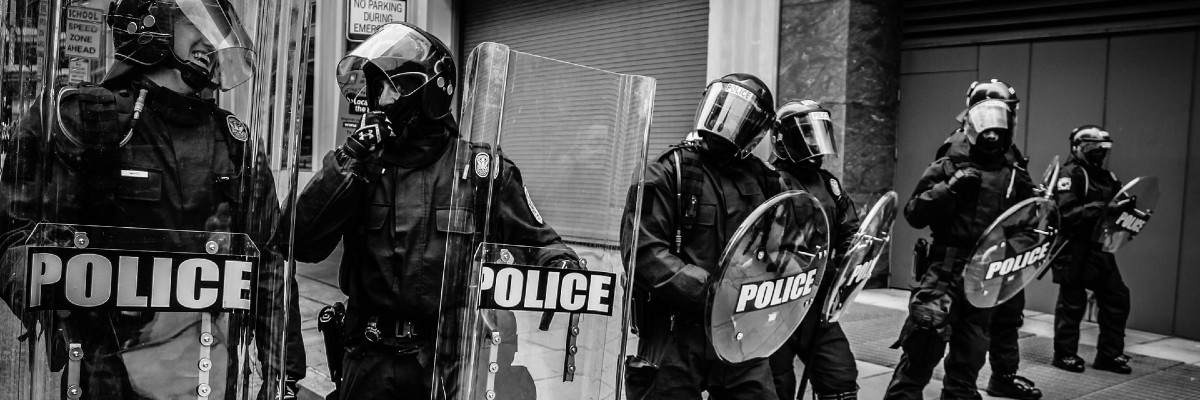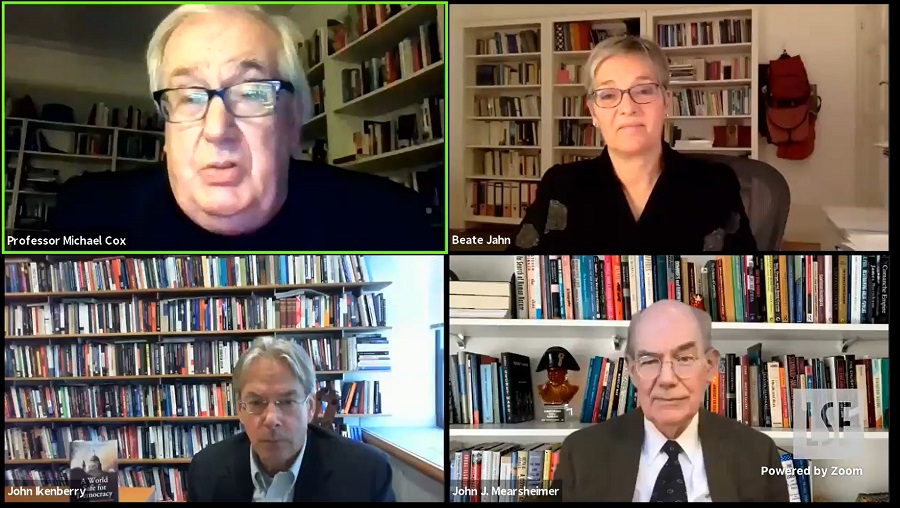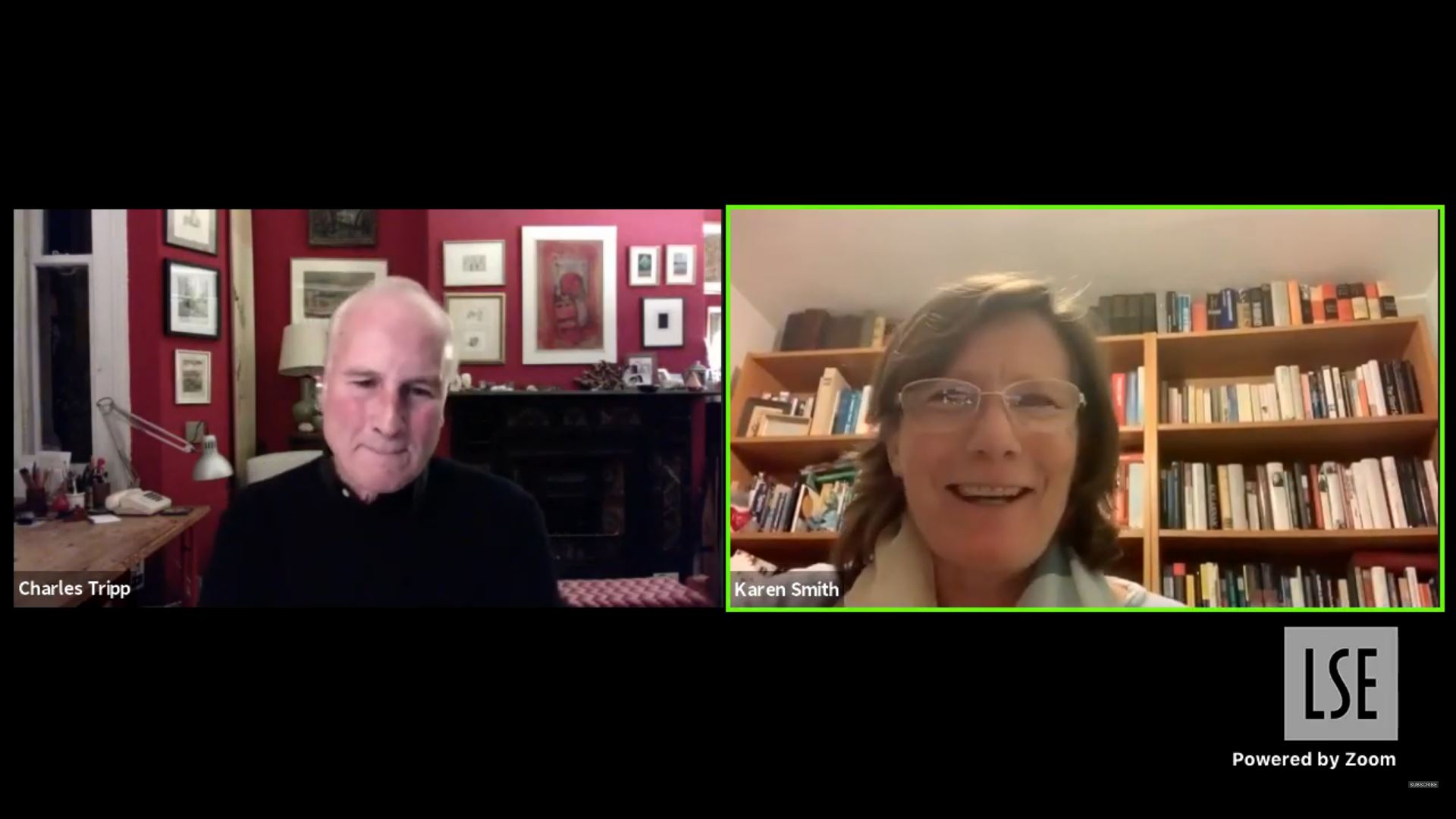On Friday 30 April 2021, the third in the How to Reform the Police four-part series explored what contributes to successful police reform and police reform movements. Matthew Light, Jyoti Belur, Cathy Lisa Schneider and Ziyanda Stuurman highlighted that reform takes different forms and is not always positive. It can enhance professionalism but also militarisation. To address police violence and excesses, one element is key – police must be held accountable for their actions. But how this is achieved is not straightforward.
The series was organised by LSE IDEAS and the Urban Violence Research Network to look at lessons on police reform from the Global South and Global North.
(The first seminar was run by co-organisers from the Urban Violence Research Network, University College London).
The series was developed by Dr Liam O’Shea, LSE’s DINAM Research Fellow in the Department of International Relations, and Dr Zoha Waseem from the Institute for Global City Policing, UCL. The event was chaired by Professor Chris Alden, Director of LSE IDEAS and Professor of International Relations.
- Find out more about this event and speakers
- Listen to or download the audio podcast (90 mins)
- Watch on YouTube (90 mins)

Legacy effects, especially the influence of former regime types, have a marked impact on policing.
Legacy effects on policing
Legacy effects, especially the influence of former regime types, have a marked impact on policing. Our speakers discussed the different forms this takes in different country contexts – segregation, Jim Crow and slavery in the USA, military rule in post-Soviet countries, apartheid in South Africa and colonisation in India, Nigeria and Kenya.
 Militarised forms of policing are common in countries with a history of military rule. Ziyanda Stuurman, Author and Project Leader at the Institute for Justice and Reconciliation, noted the challenges this presents where the origins of policing lie in complex colonial histories. In both South Africa and Brazil, police have become increasingly professionalised and remain highly militarised, the latter a result in part of the dictatorship in Brazil and the history of apartheid in South Africa. While these features can be represented as a measure of increased professionalism, this does not always equate to success, especially where there are also high levels of police violence and minimal accountability to ordinary citizens.
Militarised forms of policing are common in countries with a history of military rule. Ziyanda Stuurman, Author and Project Leader at the Institute for Justice and Reconciliation, noted the challenges this presents where the origins of policing lie in complex colonial histories. In both South Africa and Brazil, police have become increasingly professionalised and remain highly militarised, the latter a result in part of the dictatorship in Brazil and the history of apartheid in South Africa. While these features can be represented as a measure of increased professionalism, this does not always equate to success, especially where there are also high levels of police violence and minimal accountability to ordinary citizens.
 Matthew Light, Associate Professor of Criminology and Sociolegal Studies at the University of Toronto, stressed the impact different types of regimes have on the origins and development of police forces. In the former Soviet Union, for example, totalitarian rule has shaped militarised-type policing. But we need to look beyond the binary lens of authoritarian vs democratic legacies. Reality is more nuanced. For example, China has high levels of political authoritarianism, a centralised model of oversight and relatively low levels of police abuse (e.g. compared to Brazil) whereas the USA is a liberal democracy, where police are largely autonomous and it is currently experiencing high levels of police abuse.
Matthew Light, Associate Professor of Criminology and Sociolegal Studies at the University of Toronto, stressed the impact different types of regimes have on the origins and development of police forces. In the former Soviet Union, for example, totalitarian rule has shaped militarised-type policing. But we need to look beyond the binary lens of authoritarian vs democratic legacies. Reality is more nuanced. For example, China has high levels of political authoritarianism, a centralised model of oversight and relatively low levels of police abuse (e.g. compared to Brazil) whereas the USA is a liberal democracy, where police are largely autonomous and it is currently experiencing high levels of police abuse.
Oversight can be a useful tool used for tackling police malpractice or, at the least, its absence is associated strongly with high levels of abuse.
Oversight and accountability
Oversight can be a useful tool used for tackling police malpractice or, at the least, its absence is associated strongly with high levels of abuse. Ziyanda Stuurman discussed policing in South Africa, Nigeria, Kenya and Brazil as examples of this. New legislation in these contexts had sought to make police more responsive to communities and the legislative branch of government, replacing colonial legislative instruments. However, during COVID-19 lockdowns there has been outcries and public protests directed at police practices across these regions. Police brutality has been employed to enforce harsh lockdown restrictions, resulting in widespread violence and civilian deaths. The lack of effective, renewed and responsive oversight mechanisms has made it difficult to hold police accountable for abuses of power.
 Similarly, Cathy Lisa Schneider, Professor at the School of International Service at American University, examined the role of accountability in the USA. She discussed the complex history of police reforms and noted that they often lead back to questions about who controls the police. Who is giving the orders and what are the demands? The heightened attention on excessive police violence in the last few years has led to increased calls for accountability in the USA, including the setting of federal standards to protect civilians against policing killings.
Similarly, Cathy Lisa Schneider, Professor at the School of International Service at American University, examined the role of accountability in the USA. She discussed the complex history of police reforms and noted that they often lead back to questions about who controls the police. Who is giving the orders and what are the demands? The heightened attention on excessive police violence in the last few years has led to increased calls for accountability in the USA, including the setting of federal standards to protect civilians against policing killings.
The involvement of stakeholders – ‘internal’ and ‘external’ buy-in
The increased involvement of actors does not, however, necessarily contribute to improvements in accountability or successful reform more broadly.
 Jyoti Belur, Associate Professor at University College London, discussed the role of ‘buy-in’ on attempted reform in India. The Prakash Singh vs Union of India 2006 Supreme Court ruling instructed Central and state governments to comply with a set of seven directives covering organisational reform – to protect policing from political interference – and oversight – to tackle police corruption and malpractice. By 2020, however only 2 states were compliant, and only partially, with the directives.
Jyoti Belur, Associate Professor at University College London, discussed the role of ‘buy-in’ on attempted reform in India. The Prakash Singh vs Union of India 2006 Supreme Court ruling instructed Central and state governments to comply with a set of seven directives covering organisational reform – to protect policing from political interference – and oversight – to tackle police corruption and malpractice. By 2020, however only 2 states were compliant, and only partially, with the directives.
Without both ‘internal’ and ‘external’ buy-in there has been minimal meaningful reform. There was a lack of public consultation or public drive for reform and strong resistance by politicians and within the police. Police officers instead felt targeted by attempted reforms and resisted new practices. Civil society actors were also unsure how reforms would benefit the sector and there was uncertainty about whether reform would be applied equally, fairly and universally.
Without both ‘internal’ and ‘external’ buy-in there has been minimal meaningful reform.
Context matters
Exactly what drives successful reform depends on a variety of contextual factors, especially the legacy of past regimes and the impact of political influences, both of which shape the structure of policing and opportunities for intervention. Popular protests and social movements can also generate demand for change and, along with politicians, can play an important role in holding police to account. But, whilst accountability emerges as key to curtailing police abuse, there are no simplistic relationships between it and regime type, and there are some surprises. More democracy does not necessarily equal more accountability. Context matters.
Photo by Jesse Young on Unsplash






1 Comments